The Dunning Kruger effect and climate change


· 7 min read
I’m currently reading “Unsettled” by Steven E. Kronin, and it started out with these words:
"How many times have you heard these words: humans have broken the earth’s climate, rising temperatures, sea levels, melting ice-caps, heat waves, storms, droughts, floods, and wildfires are an ever-worsening scourge on the world. Greenhouse gas emissions are causing all of this. And unless they’re eliminated promptly by radical changes to society and its energy systems, “The Science” says Earth is doomed."
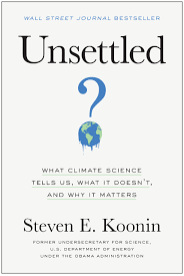
If you haven’t read the book already!
Most of us listen to and comprehend these words at a peripheral level, and believe them to be true because of course they are… we see them all around us; in our social media channels, long-form articles, online, news channels and even slowly in our films (I actually like Roland Emmerich). And why not? it’s backed by “the science”!
And then we go about our normal lives anyways... occasionally trying to bring it up with our friends and colleagues, asking them for their opinions, but this has gone on to the next level; especially with global warming and the climate.
With all humility, I do not claim to be an expert here. Nor do I wish to disregard the opinions of any other person. But why is it that we hear everybody simultaneously shouting out the same statements, using the same words or echoing the same opinions? My guess: the Dunning–Kruger effect (DK effect).
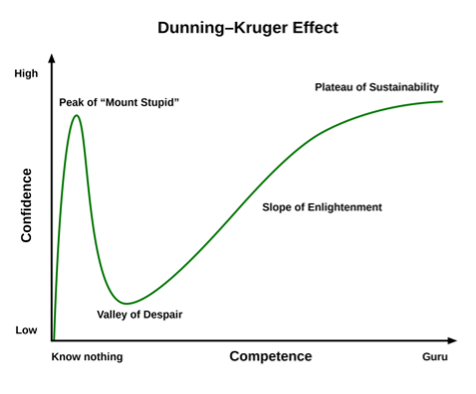
Image courtesy of Wikimedia Commons
The DK effect is defined as a cognitive bias whereby people with low ability, expertise, or experience regarding a certain type of task or area of knowledge tend to overestimate their ability or knowledge. Plainly explained, the less I know about the Lord of the Rings, the more confident I am in calling myself a “Tolkienist”.
Many of us consider the internet to be THE single most important achievement of the 21st century. But along with its many benefits, also came many banes. Everybody now has at their fingertips multiple sources to Google/quote/extract information from and this means that nobody needs to be an expert at any topic because everybody’s an expert… they just need to carry their smartphones with.
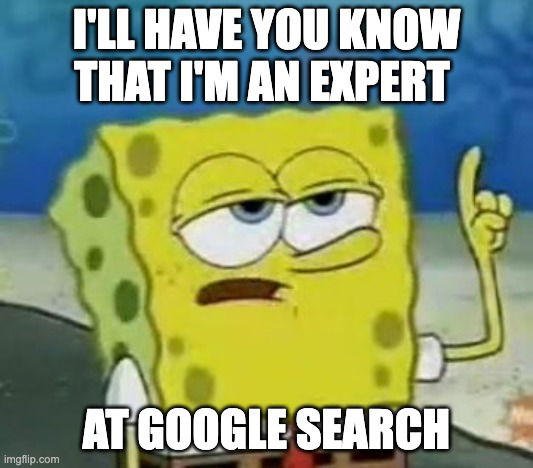
Image courtesy of Cartoonstock
The problem with this is a clouded mind due to an overload of information from a billion sources. An opinion piece, regardless of its source, has the ability to be spread around to a million people without much thought. The media chiming in does not make it easier for us.
This overload makes it seem like we know a lot in quite a short time, but in reality, we are now on the peak of “mount stupid”. And what’s more, we then go on to “share” our new-found expertise with all of our connections. The chain grows longer.
This is already NOT fine when you are a normal Jack or Jill. But think about a lawmaker... with the ability to sway thousands of Jacks and Jills with his or her opinions, and the power to turn this opinion into laws that can push billions of dollars/euros/rupees one way or another based on a superficial article.
I’m not saying that this is wrong. Surely we all follow voices and pages that we think are a source of truth, and we are bound to make some mistakes, but the least we owe to ourselves is for us to ask why and dig deeper instead of harping on someone’s words!
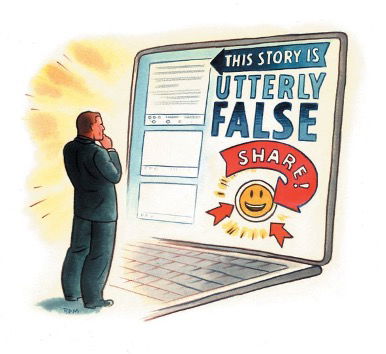
Image courtesy of Scientific American
I am definitely for the fact that climate change is a real phenomenon that has an impact on all of us. It must not be taken lightly and every chance to debate it must be brought up without prejudice. Although it must be acknowledged that the more you know about climate science, the better you can understand what is real and what is hype.
Take CO2 for example. All of us have heard somewhere that CO2 is the single largest source responsible for global warming. Then we look at this figure and our thoughts are further reinforced!
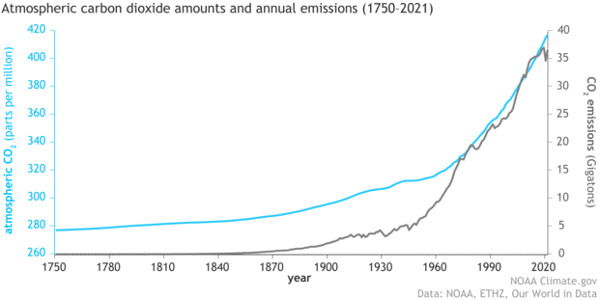 Image courtesy NOAA
Image courtesy NOAA
But if you look at the actual percentage of CO2 in the atmosphere…
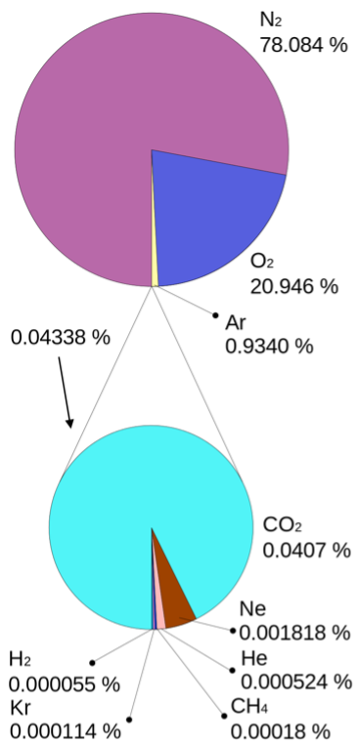
Image courtesy NASA
It’s these 0.04% of these gases (including water vapor and 400ppm of CO2), that are responsible for intercepting the heat emitted from the earth’s surface. In 1750, with 280ppm of CO2, the intercepted heat was 82.1%. In 2020, with 400ppm it was 82.7%. And even if the CO2 in the atmosphere increased to 560ppm, the heat retention in the atmosphere would rise to 83.1%. This means that the impact of CO2 is logarithmic instead of linear i.e., the higher its concentration, the lesser the increase in the magnitude of its contribution to global warming.
Even if CO2 content in the air were to double (800ppm), it wouldn’t make much of a difference today.
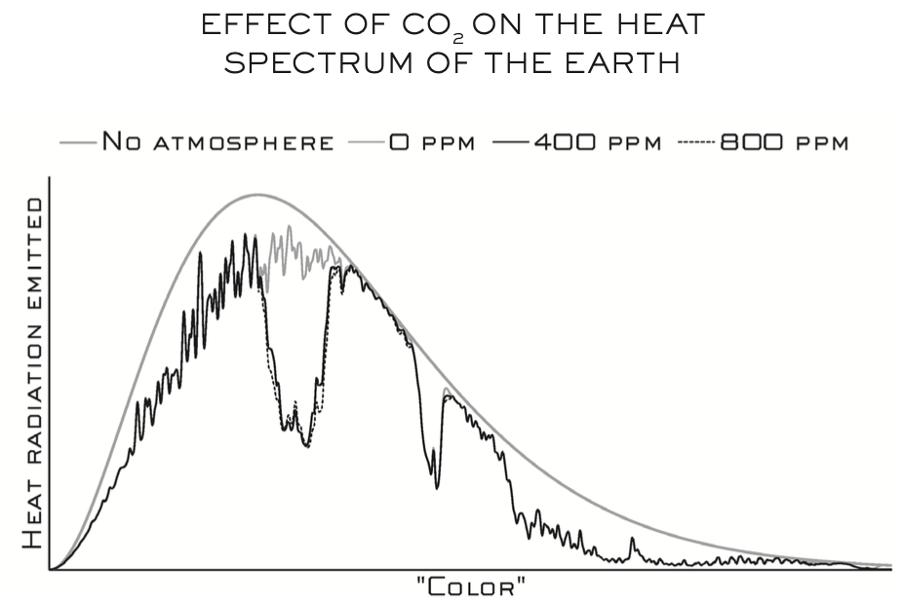
Source: https://arxiv.org/pdf/2006.03098.pdf
Does this mean that we can continue emitting CO2 endlessly? Absolutely not! it is confirmed that man-made CO2 is directly contributing to a warming influence on the planet. However, there are a ton of other factors to also consider. All put together, human-related emissions account for about 1% of the energy radiated from the earth and intercepted by the atmosphere, although we always shine the spotlight on CO2 when speaking about global warming.
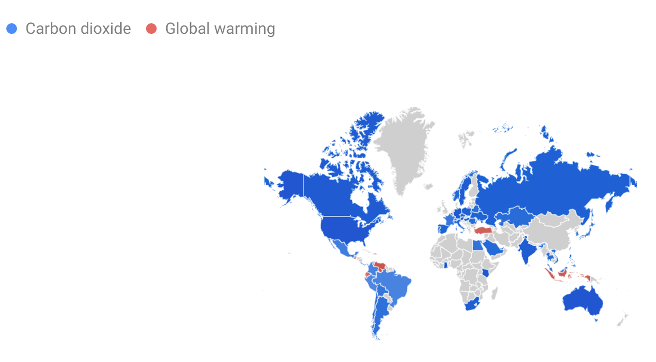
Image courtesy of Google Trends
Fret not! The DK effect is after all a bias, ergo it is rectifiable. We already have all the tools we need to get more clarity. For one; see the Internet for what it is: a filter to get information. Only depend on reliable numbers from institutes, governmental agencies, or think tanks. I try to use facts and not opinions because numbers have this uncanny value of being objective. Another thing to do is to get deep into the topic of interest.
It seems too stressful, but going through academia and literature for a topic actually helps one form stable reasoning and understanding. That’s because they offer something that internet articles don’t: the complete context. Sure, the scientists and professors who write them might also have their own hidden beliefs and opinions unintentionally put on paper. But it helps us accumulate different viewpoints. There’s always more than one way of looking at a thing and that’s what helps.
You’ll know that you’ve crossed over from the initial overconfident level to a pure thirst for more data; when you start inquiring about information from sources apart from the internet. Experts with decades of experience usually have a ton of experience based on practically learned and lived events. And boy does listening (for a change) help.
Ultimately you are entitled to your opinion(s), no matter how good or bad they may be. But do know that everyone has a zone of influence, and how you choose to influence the ones near you goes a long way in shaping your contributions to society.
Future Thought Leaders is a democratic space presenting the thoughts and opinions of rising Sustainability & Energy writers, their opinions do not necessarily represent those of illuminem.
illuminem briefings

Labor Rights · Climate Change
Steven W. Pearce

Adaptation · Mitigation
illuminem briefings

Climate Change · Environmental Sustainability
Politico

Public Governance · Climate Change
Mongabay

Climate Change · Environmental Rights
El Pais

Effects · Climate Change